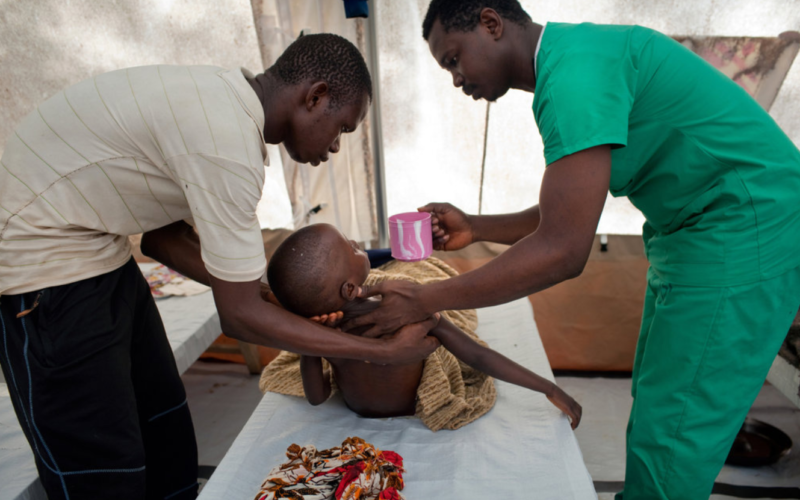Zimbabwe is grappling with an alarming rise in cholera cases, prompting the government to take immediate and stringent measures to curb the spread of this water-borne disease. With the death toll rising and thousands of suspected cases reported, authorities are keen to prevent a reoccurrence of the devastating 2008 cholera epidemic.
The southern African nation of Zimbabwe is confronting a troubling resurgence of cholera, prompting the government to take proactive measures to curb its spread. With approximately 100 suspected deaths, a significant portion occurring in September, and nearly 5,000 potential cholera cases documented across more than 41 districts, including the capital city of Harare, authorities are on high alert. Their concerns are grounded in the traumatic memory of the 2008 epidemic, when cholera claimed the lives of approximately 4,000 people.
Agnes Mahomva, a government public health adviser, expressed the need for urgent action, declaring the situation an outbreak that requires immediate intervention. As one of the most serious water-borne diseases, cholera presents a critical public health challenge, necessitating swift and decisive measures to prevent further loss of life.
Manicaland, a province sharing its border with Mozambique, has witnessed the highest number of cholera cases, with over 1,000 reported. To prevent the disease from spreading further, the government has escalated cholera surveillance at ports of entry, aiming to detect any imported infections and prevent a wider outbreak. Moreover, various regions, including Bikita in Masvingo Province, southern Zimbabwe, have been categorized as high-risk zones, subject to special attention and measures to halt the disease’s propagation.
As a means of combating the cholera outbreak, the government has implemented a series of measures aimed at preventing large gatherings and promoting essential health practices. Funerals, in particular, have become subject to strict regulations. Only a maximum of 50 individuals can attend without food service, and attendees are encouraged to avoid traditional gestures like handshakes, all in an effort to minimize potential transmission of the disease.
The recurring cholera outbreaks in Zimbabwe are not isolated incidents but symptomatic of a broader challenge—issues related to water supply and sanitation. Pervasive water shortages and a faltering sanitation system have been recurrent issues, pushing the country into a vicious cycle of cholera outbreaks. Many areas, especially in major cities like Harare and Bulawayo, experience chronic water scarcity, with residents enduring months without running water. In townships, scenes of raw sewage have become all too familiar.
In response to the dire situation, individuals have been compelled to seek water from unsafe sources, including shallow wells contaminated with fecal matter due to damaged sewer pipes. The solution to this recurring problem lies in addressing the underlying water and sanitation infrastructure, ensuring clean and accessible water for all Zimbabweans.
Zimbabwe’s relentless battle against cholera underscores the urgent need to invest in sustainable water and sanitation solutions. While the government takes vital measures to contain the current outbreak, it must also commit to long-term improvements in infrastructure to provide clean and safe drinking water to its citizens. Addressing these fundamental challenges is not only essential for averting future cholera crises but is also a cornerstone for better public health and well-being in Zimbabwe.








